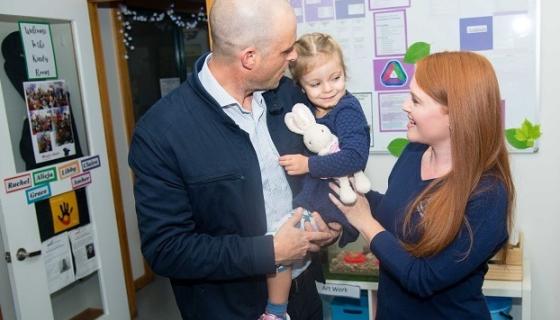
Quality child-care matters to children and parents
Children benefit from high-quality interactions in education and care. While parents are influenced by reports of quality from friends and family when choosing child-care, according to two recent pieces of research.
The Engaging young children report by the Organisation for Economic Co-operation and Development (OECD) analyses previous research across the world into how different aspects of quality in education and care affect child development and early learning.
It found that high-quality interactions with staff can lead to more effective skill development in children. In addition, staff participation in professional development specific to the sector is associated with higher-quality interactions with children and child development.
The effect of group size on interactions between staff and children is not so clear. But smaller groups appear to benefit younger children.
The Families qualitative research project: stage 2 research by Hall & Partners, commissioned by ACECQA, found parents value high-quality child-care but have low awareness of the National Quality Standard (NQS). They generally don’t know that an NQS rating provides a measure of a service’s quality.
Parents rely heavily on recommendations from friends, family and social media acquaintances as well as child-care visits and their own judgement when choosing a service.
Their knowledge of ACECQA’s Starting Blocks website, which provides information for parents about the NQS and a child-care search function, is very low. But they do generally trust government information.
Aboriginal or Torres Strait Islander parents generally find the process of finding child-care less overwhelming than other parents. They mainly want to find a service that will help link their child to family and community, rather than relying on online information.
For more information, please click on the links above to the research reports.

